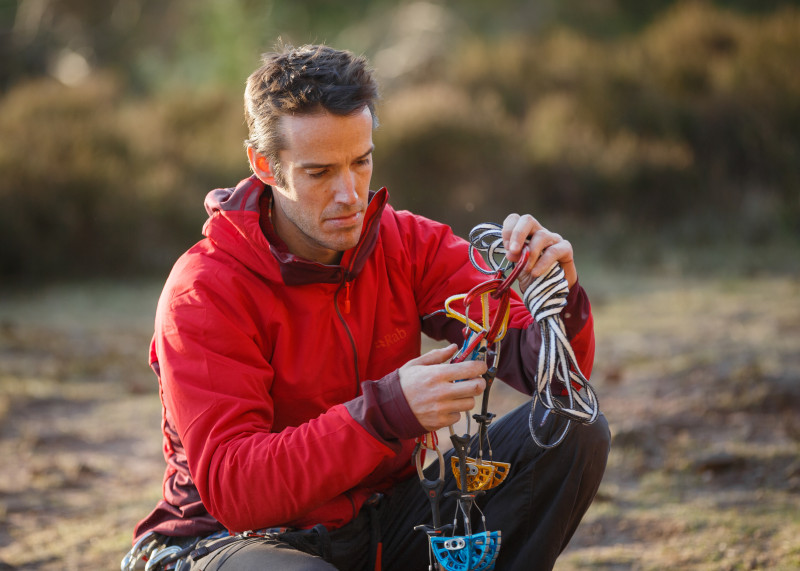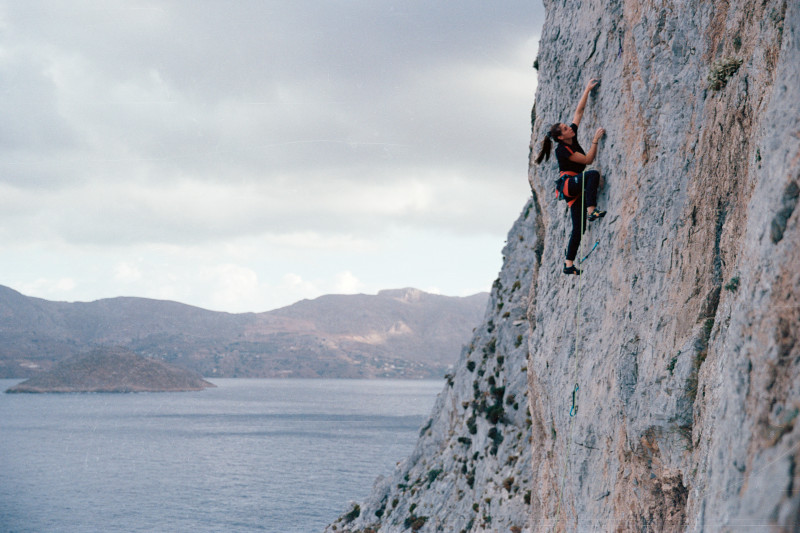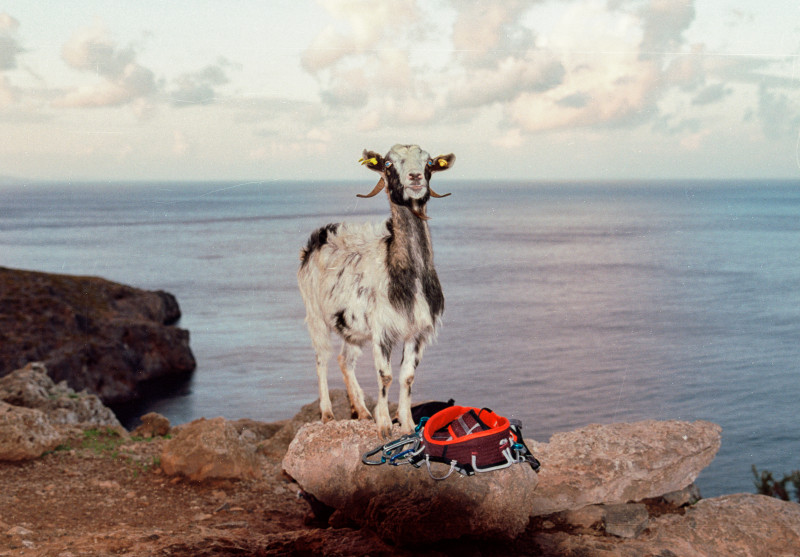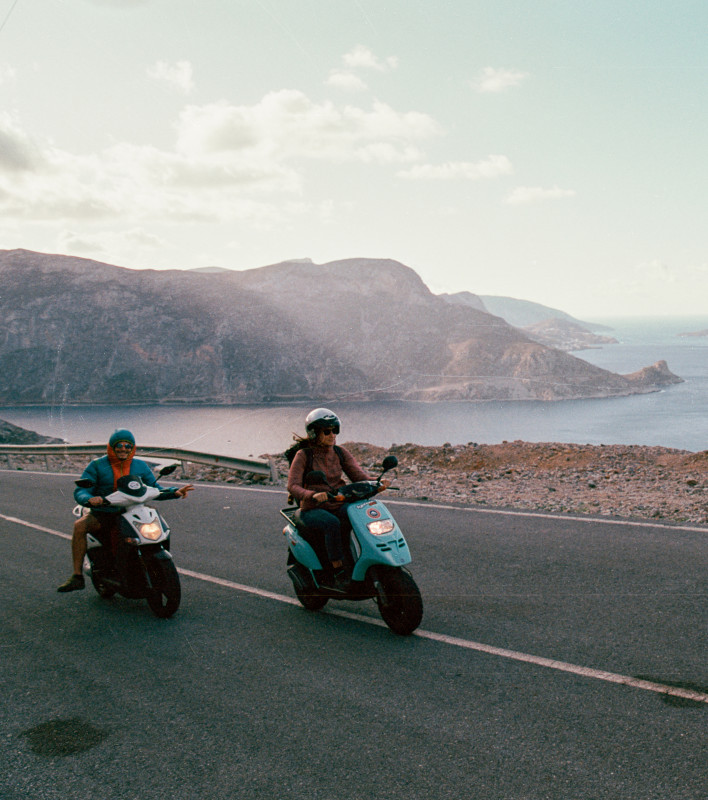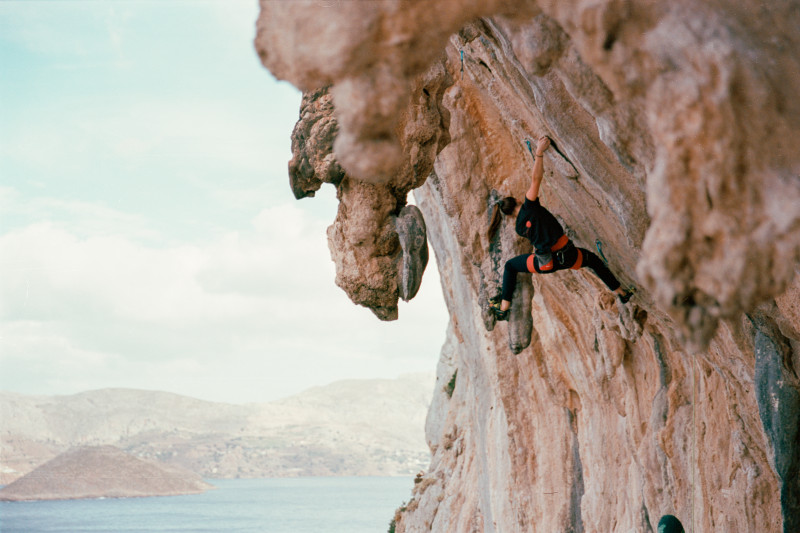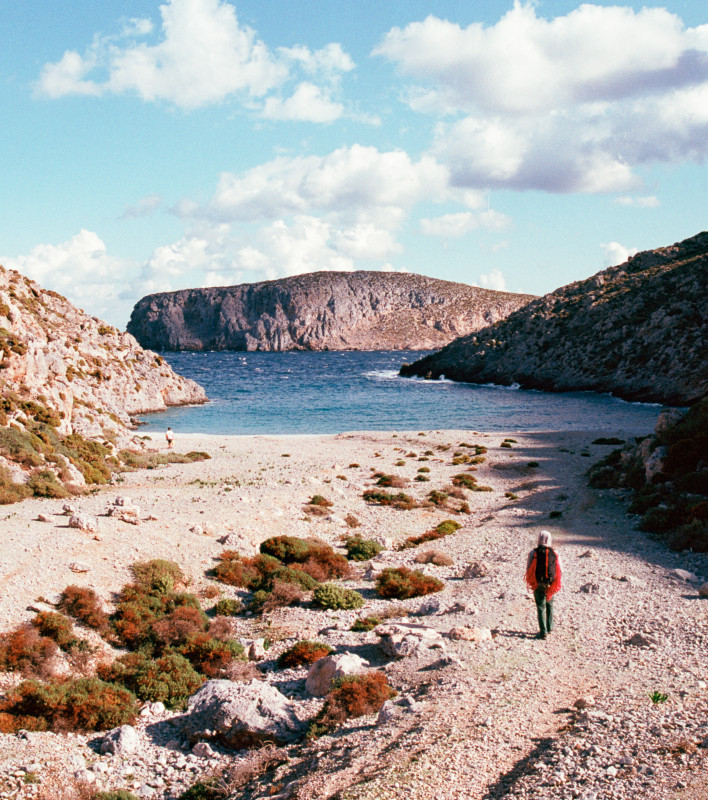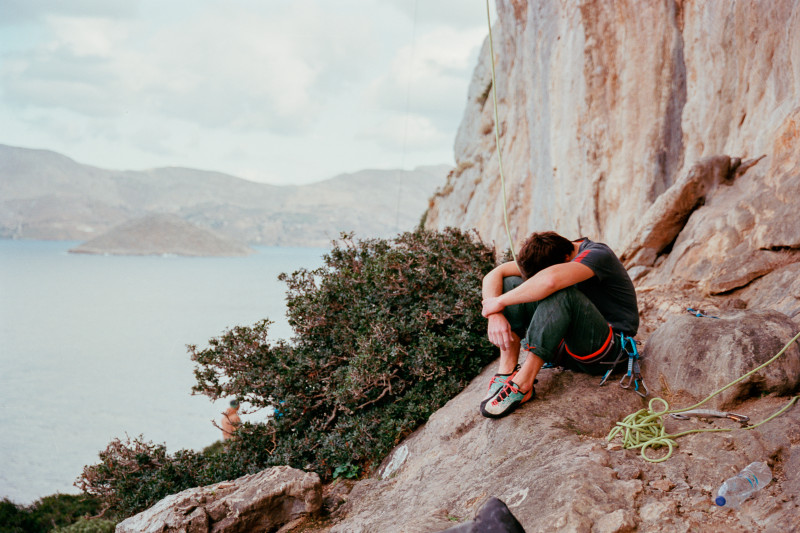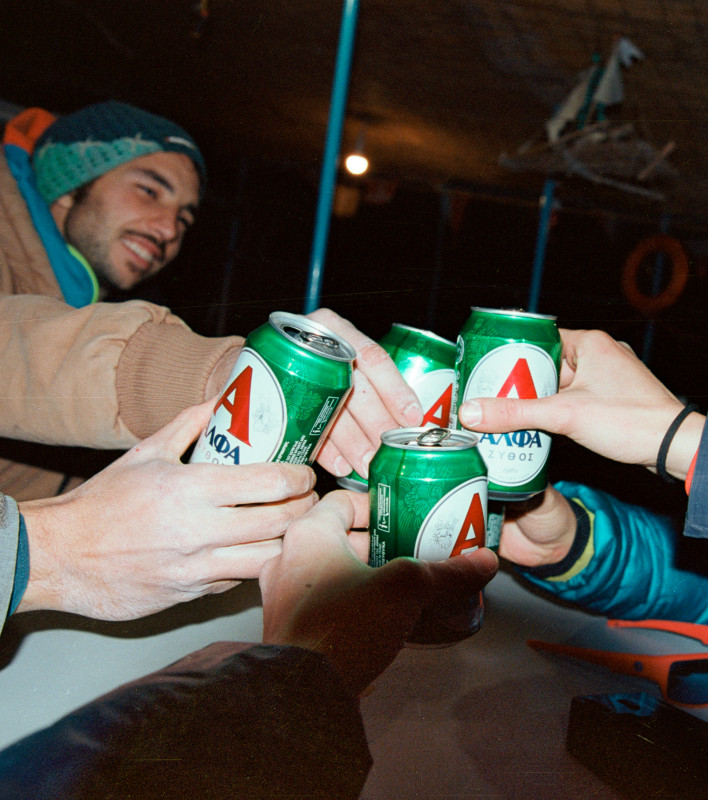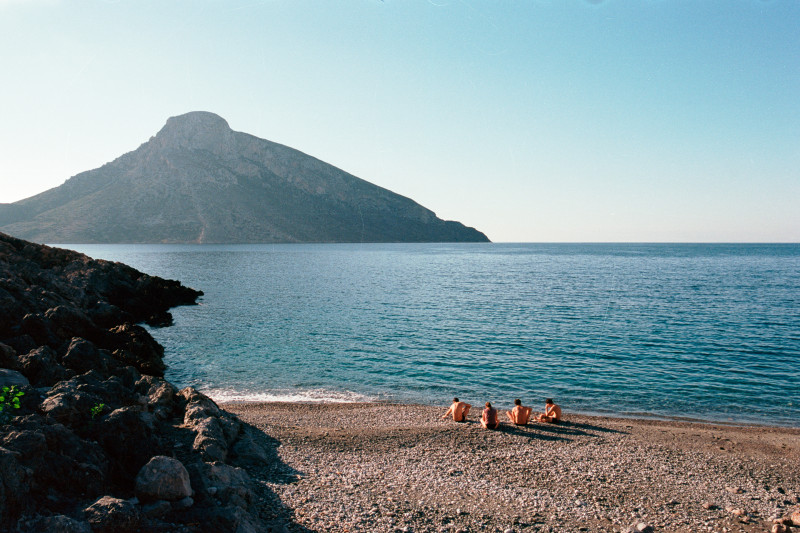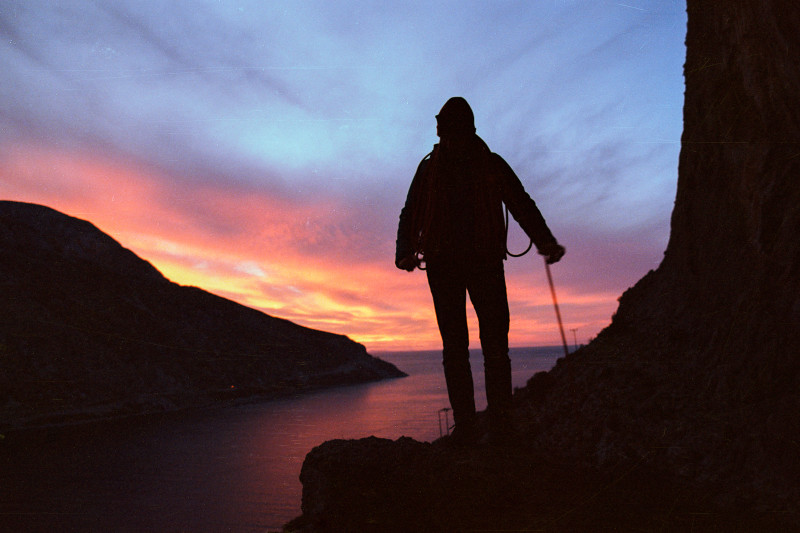CLIMBING POST COVID
"Happiness is a state of mind that consists of relentlessly adapting to your passion"
The sun has already slipped beneath the horizon line by the time I finish packing the rope into my backpack. My arms are aching as I load it onto my shoulders and follow my friends down the trail before it gets too dark. My hands are grazed and I probably don’t smell great. One at a time, we turn on the rented scooters that have allowed us to reach the cliff faces of Kalymnos for the last few days. As night approaches, we descend towards an eatery in Arginonta to grab a beer.
It's early December and soon winter will be here too. The cool air feels nice against my still sun-warmed skin. We overtake each other. Every so often someone honks their horn to warn the others about goats in the middle of the potholed street. It is in these moments of almost superficial and frivolous delight that I find the meaning of climbing. Moments of shared feeling, when everyone's hearts are synced to the same wavelength.
I've never been a good athlete: I don't like to work out methodically. I'm lazy and often lacking in the determination required to drive a performance home. As a result, it is often where and who I climbed with - and not so much what I actually climbed - that makes me return home with a smile on my face. I could almost forgo rock climbing, if I was allowed to keep all the rest that goes with a day of climbing: the views, the adrenalin, feeling my tired body and, above all, the friends that I've been hanging out with. These are light, delicate sensations, which is perhaps why they are difficult to identify before they are taken from you, such as when gatherings are banned and movement is limited due to a global pandemic.
SHARE ON
Many of us haven't climbed for weeks or months due to the COVID-19 restrictions. Then, the lockdown has gradually relaxed, even in the places where it was most severe, and outdoor sports have been allowed once again. However, us climbers, just like everyone else, have found ourselves faced with a different world. Being together is no longer possible, certainly not as we knew it until recently.
Some people publish photos on social media of walls and trails, joking about the fact that we've always been very well acquainted with social distancing. It's not true, at least not entirely. Of course, we search for places that are isolated from the masses, but places where we can all meet. The concept of community is one of the features that makes climbing something more than a mere sport: when we see a car with a bumper sticker of a brand or a place, or when we meet a stranger on the street who is dressed for bouldering to go food shopping, we know that they are one of us. This means that if we were to meet close to a cliff face, we'd greet one another. We'd probably stop and talk to them and their friends too. We certainly wouldn't avoid them, as we are now asked to do in order to comply with social distancing rules. Raise your hand if you have never climbed with the quickdraws of someone else, used their rope, or drank from their water bottle. Or shared an uncomfortable belay station, slept in their van, or had a bite of their sandwich. Or hugged after completing a pitch or shared a cigarette. Or organised fire-side dinners with 15 or 20 people.
Those rules, albeit watered down, have been passed down to us and we continue to keep them alive through the small climbing communities that spontaneously spring up around rock walls and gyms. Cëuse, Margalef, Kalymnos, Yosemite, Val di Mello: all places that have been made unique, not merely by the environment, but also by the groups of climbers who converge there from all over the world to share an experience. Today, however, it is down to us to submit to the new rules too, at least until the waters have calmed. We can certainly climb, if by climb you mean the movements that allow us to ascend a rock face. If, on the other hand, by climb we mean all the rest, then no. That is still not possible. Hopping on a plane, landing on a Greek island with your friends, meeting other climbers who have come from all over the world, spurred on by the exact same passion that is, at times, incomprehensible to people who have never put on a harness in their lives.
"Happiness is a state of mind that consists of relentlessly adapting to your passion", said Patrick Edlinger. This is a phrase that, for most of us, would have meant making a few sacrifices up until a few months ago. For example, leaving a good job to have more time to spend climbing, or shouldering extra training or injuries just to be able to grip the crimp of a particular pitch.
Now, on the other hand, it means having to adapt to changes happening all over the world: setting aside a whole series of habits that made climbing what it means to us all, if we don't want to turn our hand to something else. Setting aside the life of the community for ourselves, being more individualistic: some will manage it, others won't. Someone will have already been climbing with a few, select partners, and perhaps they have even enjoyed themselves. Others, on the other hand, will wait to be able to go with their rambunctious group of friends, to create that happy gathering that is currently not allowed. In the meantime, we get by however we can, going to discover cliff faces that have been forgotten in amongst the brambles, or training at home on wooden beams, imagining that we are hanging from holes in limestone.
Yet everyone will feel a sense of nostalgia for what our lives were like up until a few months ago. I miss my friends, and climbing, which for me are one and the same thing. We will go back to drinking a beer together by the fire, I promise.
Blog and pictures by Federico Ravassard

